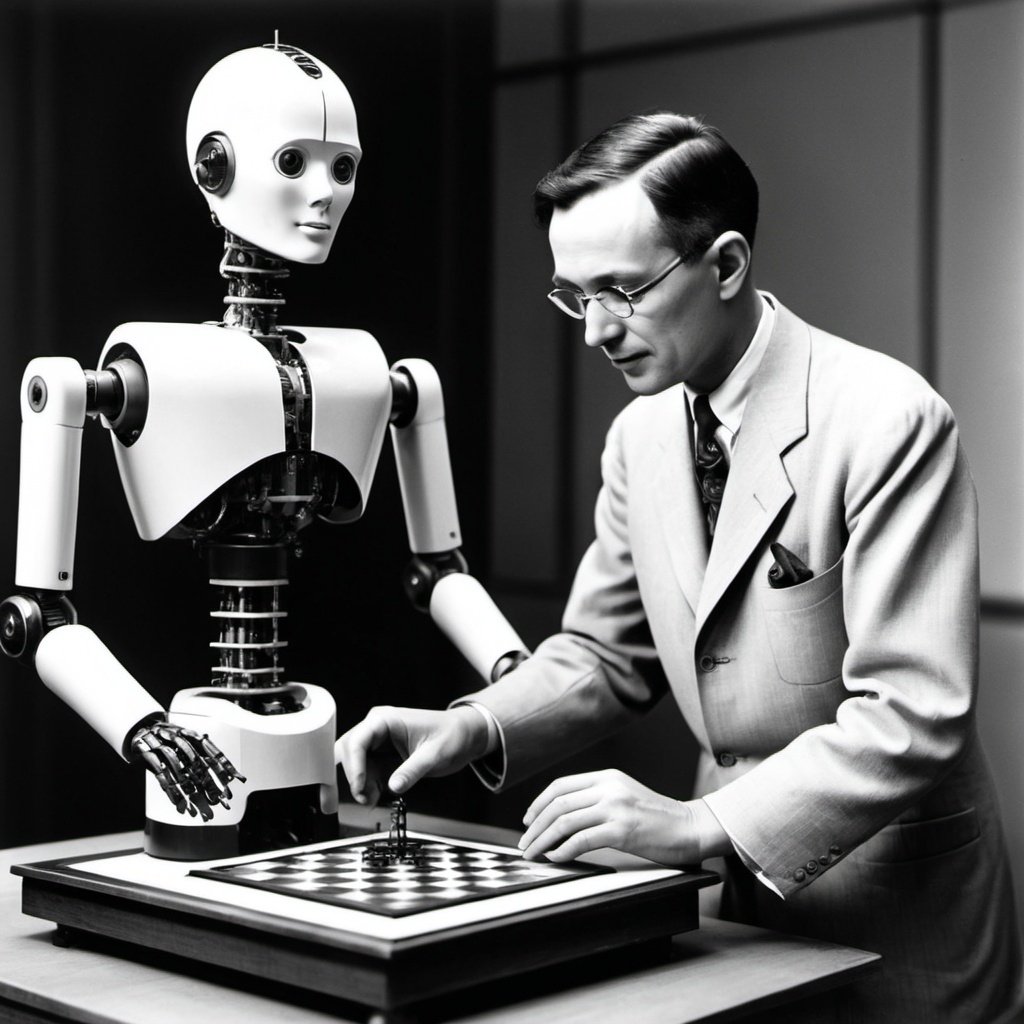Artificial intelligence (AI) is a fascinating field within computer science that aims to create systems capable of replicating human intelligence and problem-solving abilities. These systems ingest vast amounts of data, process it, and learn from past experiences to improve their performance over time. Unlike traditional computer programs that require human intervention for bug fixes and process improvements, AI systems can adapt and evolve autonomously.
The concept of artificial intelligence has roots that stretch back millennia, with ancient philosophers pondering questions of life, consciousness, and the potential for creating intelligent machines. However, for the purposes of this article, we’ll focus on the remarkable journey of AI from the 20th century to the present day, exploring how engineers and scientists have made incredible strides toward realizing the dream of truly intelligent machines.
The Precursors: Laying the Groundwork for AI (1900-1950)
The early 20th century witnessed a surge of interest in the idea of artificial humans, sparking scientific curiosity about the possibility of creating an artificial brain. This period saw the emergence of rudimentary robots, mostly steam-powered contraptions capable of simple tasks like facial expressions and walking. Some key milestones during this era include:
- 1921: Czech playwright Karel Čapek introduces the term “robot” in his science fiction play “Rossum’s Universal Robots,” popularizing the concept of artificial beings.
- 1929: Japanese professor Makoto Nishimura constructs Gakutensoku, Japan’s first robot, showcasing the country’s early interest in robotics and AI.
- 1949: Computer scientist Edmund Callis Berkeley publishes “Giant Brains, or Machines that Think,” drawing parallels between emerging computer technology and human cognition.
These early developments set the stage for the explosive growth of AI in the coming decades, as scientists and engineers began to explore the true potential of intelligent machines.
The Birth of AI: From Concept to Reality (1950-1956)
The 1950s marked a pivotal moment in the history of artificial intelligence, as the field began to take shape and gain recognition as a distinct area of study. This period saw the introduction of groundbreaking concepts and the coining of the term “artificial intelligence” itself. Some of the most significant events during this time include:
- 1950: Alan Turing publishes his seminal work “Computer Machinery and Intelligence,” proposing the now-famous Turing Test as a measure of machine intelligence.
- 1952: Arthur Samuel develops a groundbreaking program capable of learning to play checkers independently, showcasing the potential for machines to improve their performance through experience.
- 1955: John McCarthy organizes the Dartmouth Workshop on “artificial intelligence,” officially introducing the term and laying the foundation for future research in the field.
These developments marked the beginning of a new era in computer science, as researchers began to explore the possibilities of creating truly intelligent machines capable of learning, reasoning, and problem-solving.
AI Maturation: Rapid Growth and Growing Pains (1957-1979)
The period between the coining of the term “artificial intelligence” and the 1980s was characterized by both rapid advancements and significant challenges for AI research. The late 1950s through the 1960s saw a flurry of innovation, including the development of programming languages still in use today and the exploration of AI concepts in popular culture. Some notable achievements during this time include:
- 1958: John McCarthy created LISP (List Processing), the first programming language specifically designed for AI research, which remains influential to this day.
- 1961: The first industrial robot, Unimate, begins working on an assembly line at General Motors, marking the beginning of AI’s practical applications in manufacturing.

Explore TechTalent: Elevate Your Tech Career
Certify Skills, Connect Globally
TechTalent certifies your technical skills, making them recognized and valuable worldwide.
Boost Your Career Progression
Join our certified talent pool to attract top startups and corporations looking for skilled tech professionals.
Participate in Impactful Hackathons
Engage in hackathons that tackle real-world challenges and enhance your coding expertise.
Access High-Demand Tech Roles
Use TechTalent to connect with lucrative tech positions and unlock new career opportunities.
Visit TechTalent Now!
Explore how TechTalent can certify your skills and advance your tech career!
